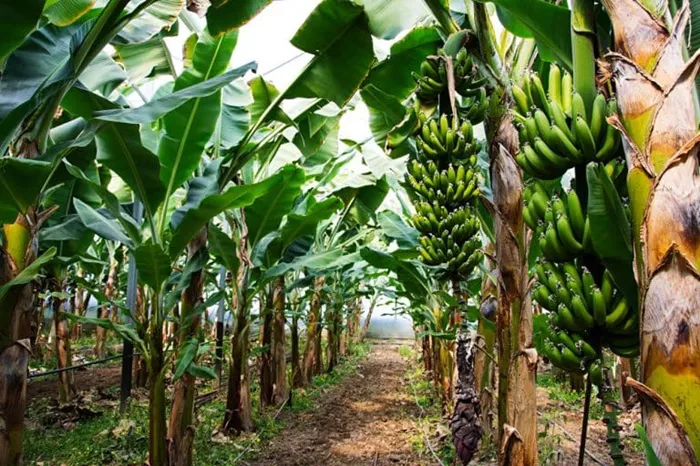Banana plants are tropical and subtropical plants known for their large leaves and sweet fruit. They are widely cultivated in many parts of the world, especially in regions with warm climates. Like many plants, banana plants can be susceptible to various environmental factors and contaminants. One such contaminant is diesel fuel. This article explores the impact of diesel fuel on banana plants, discussing the potential harm, the mechanisms behind it, and preventive measures.
Understanding Diesel Fuel and Its Components
What is Diesel Fuel?
Diesel fuel is a type of fuel derived from crude oil and used primarily in diesel engines. It is composed of hydrocarbons, including paraffins, naphthenes, and aromatics. Diesel fuel is known for its high energy density and efficiency in engines.
Key Components of Diesel Fuel
Hydrocarbons: The primary component, which provides energy.
Additives: Chemicals added to improve performance and reduce emissions.
Contaminants: Unwanted substances that can cause harm to the environment and living organisms.
Mechanisms of Diesel Fuel Impact on Plants
How Diesel Fuel Affects Soil
Contamination: Diesel fuel can contaminate the soil, affecting its composition and structure.
Toxicity: Hydrocarbons in diesel fuel are toxic to soil microorganisms and plants.
Water Retention: Diesel fuel can alter the soil’s ability to retain water, crucial for plant growth.
Impact on Plant Roots
Absorption: Roots can absorb diesel fuel, leading to toxicity.
Growth Inhibition: Diesel fuel can inhibit root growth and function.
Nutrient Uptake: Contaminated roots may struggle to uptake essential nutrients.
Diesel Fuel and Banana Plants
Susceptibility of Banana Plants
Banana plants have large leaves and extensive root systems, making them particularly susceptible to soil contaminants. Their need for a constant supply of water and nutrients makes them vulnerable to disruptions caused by diesel fuel.
Potential Damage
Leaf Damage: Diesel fuel can cause leaf chlorosis (yellowing) and necrosis (death of leaf tissue).
Growth Stunt: Exposure to diesel fuel can stunt the growth of banana plants.
Fruit Production: Diesel fuel contamination can reduce or completely halt fruit production.
See also: Will Diesel Fuel Kill Termites? [Revealed]
Preventive Measures and Remediation
Preventing Diesel Fuel Contamination
Proper Storage: Store diesel fuel in secure containers away from agricultural areas.
Spill Prevention: Implement measures to prevent accidental spills during transportation and storage.
Regular Maintenance: Maintain machinery to prevent leaks and spills.
Remediation Techniques
Soil Washing: A technique to remove diesel fuel from contaminated soil.
Bioremediation: Using microorganisms to break down diesel fuel in the soil.
Phytoremediation: Planting specific plants that can absorb and degrade contaminants.
Environmental and Economic Impacts
Environmental Consequences
Soil Health: Diesel fuel contamination degrades soil health, affecting not just banana plants but the entire ecosystem.
Water Sources: Contaminated soil can lead to diesel fuel leaching into water sources, posing risks to aquatic life.
Economic Costs
Crop Losses: Reduced banana yields lead to financial losses for farmers.
Remediation Expenses: Cleaning up diesel fuel contamination can be costly and time-consuming.
Conclusion
Diesel fuel can indeed kill banana plants. Its toxic components affect soil health, root function, and overall plant growth, leading to reduced crop yields and economic losses. Preventive measures and effective remediation techniques are essential to protect banana plants and ensure sustainable agriculture. By understanding the mechanisms of diesel fuel impact and implementing appropriate strategies, we can mitigate the risks and promote healthier plant growth.
FAQ about Diesel Fuel
1.Will diesel fuel kill trees?
Diesel fuel can harm trees if it comes into direct contact with their roots or foliage. The toxic components in diesel can disrupt the absorption of water and nutrients, potentially leading to the decline or death of trees.
2.How long does diesel fuel stay in the soil?
The persistence of diesel fuel in soil depends on various factors such as soil type, temperature, and microbial activity. Generally, diesel can remain in soil for weeks to months, but in some cases, it may persist longer, especially in colder or less biologically active environments.
3.Is diesel fuel poisonous?
Yes, diesel fuel is toxic to humans, animals, and plants. It contains hydrocarbons and other chemicals that can cause harmful effects upon ingestion, inhalation, or prolonged skin contact. Proper handling and disposal are crucial to minimize risks.
4.Does rain wash away diesel?
Rainfall can wash diesel fuel from surfaces, including soil and pavement, especially if it hasn’t fully soaked in or been absorbed. However, it may not completely eliminate the diesel contamination, as it can seep into soil or groundwater depending on the conditions.
5.Does diesel evaporate in the sun?
Diesel fuel can evaporate to some extent when exposed to sunlight and higher temperatures. The rate of evaporation depends on factors like surface area, temperature, and ventilation. However, diesel tends to evaporate more slowly compared to gasoline due to its heavier composition.
Related topic:

